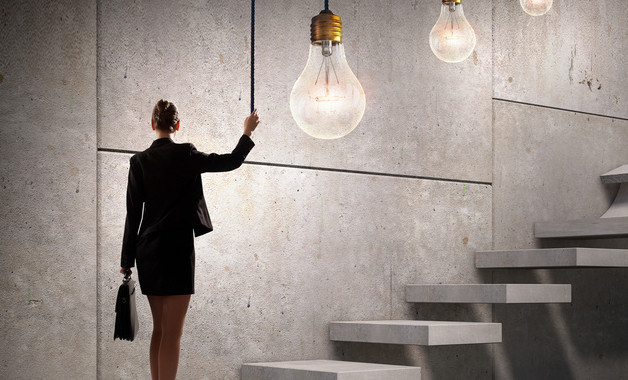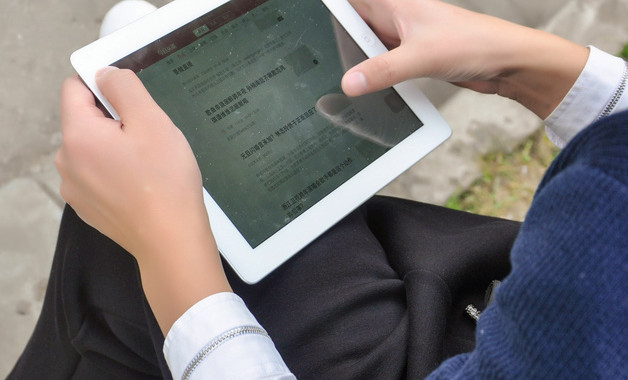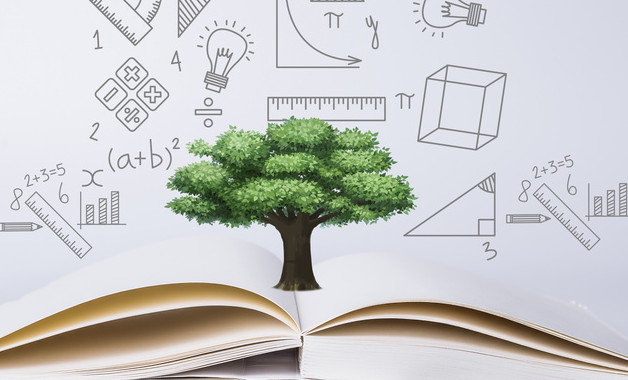
第1篇 外国语学院学生会**团竞聘演讲稿
今天小编为大家收集资料整理回来了一些关于的范文,希望能够为大家带来帮助,希望大家会喜欢。同时也希望给你们带来一些参考的作用,如果喜欢就请继续关注我们的后续更新吧!
尊敬的各位老师,亲爱的同学们:
大家晚上好!首先,我很高兴也很荣幸能够参加这次外国语学院学生会的竞聘。今天,我来这儿的目的不是为了扬名,而是要为外院美好的明天贡献自己的一点微薄之力。
我的名字叫李xx,来自11应用德语。竞选的职务是学生会**团。也许有人会认为我有点狂妄,大一就想当学生会**?说实话,我很清楚,在坐的各位都是各班经过精挑细选选出来的精英,实力不可小觑,面对这么多出类拔萃的竞争对手,我还真有点想打退堂鼓,但是同学们对我说:“站出来,不要怕,我们支持你,你一定能行!还有什么可犹豫的?”
或许会有些人会暗自发笑:这小姑娘怎么这么自负!可是我想说,这不是自负,这是自信!一个人如果连自己都不相信,那么他就没有资格做任何事,即使做了,也很难成功!我之所以能够站在这里,大部分是由于我的自信!当然,能力也很重要,因为一个人的信心和能力永远是成正比的。所以,今天我充满自信的站在这里,认为自己有能力挑战**团!
我热情开朗,有很强的亲和力,能与同学们打成一片;范文写作我认真负责,尽心尽力地做好每一件事,有很强的凝聚力;我敢于创新,进取心强,工作一定会充满活力,生机勃勃;我有强烈的为同学们服务的精神,为学校争光的思想。
从4岁起,我学习古筝,以良好的等级获得了“江苏省音乐家协会古筝十级考核证书”;高中时期,我积极参加学校及南京市里各种活动,并获得令人瞩目的成绩。在xx年赴法访学中,曾有与法国学生共同主持联谊晚会的经历;在开学的新生英语演讲比赛中,我用自己的能力取得了第一名的好成绩;之后通过面试被纳入院学生会文娱部,并参加了学校组织的各种文艺活动,都获得了不错的名次。
自从担任班长一职后,我对班级事务尽心尽责,关爱同学,团结同学们解决班级遇到的一个个困难,不断学习探索管理办法,总结管理经验,丰富实践知识,正逐渐形成自己的管理风格,使自己各方面能力都有了很大的提高。从工作中,我学会了怎样为人处世、怎样学会忍耐,怎样解决一些矛盾,怎样班级各成员之间的关系,怎样动员一切可以团结的力量,怎样提拔和运用良才,怎样处理好学习与工作之间的矛盾。
我想,最现实,最实际的还是假如我能进入**团后对未来将要开展的工作的几点想法:
首先,我认为作为学生干*的我们应深入群体,收集信息,整理信息,反馈信息。为每个部门建立起“部门档案”。通过“部门档案”里反映的内容对每个同学的特长,思想汇报专题爱好更深刻的了解,方便日后学生会工作的开展。协调好老师与学生、年级学生会与学校学生会、学生会与同学之间、学生会内部之间的各种关系。
其次,是把握全局。我会加强学生会团队建设,在同学心目中树立一个良好的组织形象,接受广大同学的监督,处事做到公平,公正,公开。同时,通过举办一些活动,培养各部门团结协作的精神,增强学生会的凝聚力。
学生会是一个集体,我们学生会每一个成员都要时刻维护学生会的优良形象,做好模范带好头。要时时以身作则,处处树立榜样,秉公办理各类事情,不能有丝毫的私心,要敢于批评与自我批评,善于听取不同意见,完善自己,促进工作。不但在同学们中树立自己的良好形象,而且要让同学们充分信任学生会,这一切要求我们努力努力再努力。当然,这一切都要首先从我自己做起,经得起检验与考验。
第2篇 外国人学汉语的演讲稿
获奖者的演讲稿
大家好,我叫赛侃,是卑尔根商业高中的学生。我学汉语快三年了。其实,我们学校的汉语课是两年,但我和我的同学汤洁非常喜欢学习汉语,我们俩又一起多学了一年汉语。我希望我能有机会去中国学一年汉语。
我喜欢学习汉语,是因为我觉得学习汉语对发展挪威和中国的关系很重要。如果能够听懂各自的语言,我们一定可以很快地成为朋友。
不过,我学习汉语,可没少出笑话,今天我就说两个笑话吧。
第一个笑话是找姓赛的人。
xx 年8月,我们的的汉语班去了北京。刚到北京,我就发现,我一介绍我的名字中国人就笑。
他们还问我:“你叫赛侃?比赛的赛,侃侃而谈的侃吗?这个姓真奇怪啊。另外,和侃侃而谈的人比赛说话,你一定很爱说话吧?”
我觉得很爱说话不大好,所以到北京的第一天我就已经很不好意思了。可是关于我的名字的事儿还没完,因为北京的一个老师说我最好换我的姓,她说中国有很多人姓司,司机的司,可是没有人姓赛。我查了查,不能换啊,司侃,听起来就是死了还要侃侃而谈,不好。但从那以后,我开始在北京找姓赛的人。
有一天,我看见一个招牌上有赛字,就对我的同学说:“汤洁!安红枫!看那个招牌!那个汉字是赛! 那个男人一定姓赛!”
我的同学说:“赛侃,那是个足球比赛的广告。”
哦,我真失望啊!在我们高中,我还有一个同学叫赛一鸣,和我一个姓,可是在北京,我却没找到一个姓赛的人,真是奇怪!
第二个笑话,出租车不是厕所!
在北京的第三天,我们去王府井大街买东西。 回学校的时候,我们迷路了,打算找一个出租车回北京体育大学。我们招手叫taxi。可是我忘了taxi用汉语怎么说了,就问我的朋友,朋友说,taxi一定就是cesuo。
我们在街上招手大声叫:“厕所!厕所!我们需要一个厕所!”
当然没有司机停下他们的taxi 给我们当cesuo。
终于我们找到了一个停着的taxi。
“真巧!我们正需要一个厕所。你是空的厕所吗?”
司机告诉我们:“那儿有个厕所。”
我们告诉他我们就要他的taxi。他告诉我们这是出租车,不是厕所!
我学汉语还有很多有趣的事儿呢。不过现在,我很喜欢我的名字,我希望将来我说汉语的时候,能赛过侃侃而谈的人!当然,我再也不会忘记,出租车不是厕所!
谢谢!
第3篇 奥巴马在韩国外国语大学的演讲稿【双语版】
thank you. (applause.) thank you so much. thank you. (applause.) please, thank you very much.
to president park, faculty, staff and students, thank you so much for this very warm welcome. it is a great honor to be here at hankuk university of foreign studies. (applause.) i want to thank dr. park for, a few moments ago, making me an honorary alumni of the university. (applause.)
i know that this school has one of the world’s finest foreign language programs -- which means that your english is much better than my korean. (laughter.) all i can say is, kamsa hamnida. (applause.)
now, this is my third visit to the republic of korea as president. i've now been to seoul more times than any other capital -- except for washington, d.c., of course. this reflects the extraordinary bonds between our two countries and our commitment to each other. i’m pleased that we’re joined by so many leaders here today, koreans and americans, who help keep us free and strong and prosperous every day. that includes our first korean-american ambassador to the republic of korea -- ambassador sung kim. (applause.)
i’ve seen the deep connections between our peoples in my own life -- among friends, colleagues. i’ve seen it so many patriotic korean americans, including a man born in this city of seoul, who came to america and has dedicated his life to lifting up the poor and sick of the world. and last week i was proud to nominate him to lead the world bank -- dr. jim yong kim. (applause.)
i’ve also seen the bonds in our men and women in uniform, like the american and korean troops i visited yesterday along the dmz -- freedom’s frontier. and we salute their service and are very grateful for them. we honor all those who have given their lives in our defense, including the 46 brave souls who perished aboard the cheonan two years ago today. and in their memory we reaffirm the enduring promise at the core of our alliance -- we stand together, and the commitment of the united states to the defense and the security of the republic of korea will never waver. (applause.)
most of all, i see the strength of our alliance in all of you. for decades, this school has produced leaders -- public servants, diplomats, businesspeople -- who’ve helped propel the modern miracle that is korea-- transforming it from crushing poverty to one of the world’s most dynamic economies; from authoritarianism to a thriving democracy; from a country focused inward to a leader for security and prosperity not only in this region but also around the world -- a truly “global korea.”
so to all the students here today, this is the korea your generation will inherit. and i believe there's no limits to what our two nations can achieve together. for like your parents and grandparents before you, you know that the future is what we make of it. and you know that in our digital age, we can connect and innovate across borders like never before -- with your smart phones and twitter and me2day and kakao talk. (laughter and applause.) it’s no wonder so many people around the world have caught the korean wave, hallyu. (applause.)
or consider this: in advance of my visit, our embassy invited koreans to send us your questions using social media. some of you may have sent questions. and they called it, "ask president obama." now, one of you -- maybe it was you, maybe it was somebody else -- this is true -- asked this question: “have you posted, yourself, a supportive opinion on a website under a disguised name, pretending you are one of the supporters of president obama?” (laughter.) i hadn’t thought of this. (laughter.) but the truth is i have not done this. maybe my daughters have. (laughter.) but i haven’t done that myself.
so our shared future -- and the unprecedented opportunity to meet shared challenges together -- is what brings me to seoul. over the next two days, under president lee’s leadership, we’ll move ahead with the urgent work of preventing nuclear terrorism by securing the world’s nuclear materials. this is an important part of the broader, comprehensive agenda that i want to talk with you about today -- our vision of a world without nuclear weapons.
three years ago, i traveled to prague and i declared america’s commitment to stopping the spread of nuclear weapons and to seeking a world without them. i said i knew that this goal would not be reached quickly, perhaps not in my lifetime, but i knew we had to begin, with concrete steps. and in your generation, i see the spirit we need in this endeavor -- an optimism that beats in the hearts of so many young people around the world. it’s that refusal to accept the world as it is, the imagination to see the world as it ought to be, and the courage to turn that vision into reality. so today, with you, i want to take stock of our journey and chart our next steps.
here in seoul, more than 50 nations will mark our progress toward the goal we set at the summit i hosted two years ago in washington -- securing the world’s vulnerable nuclear materials in four years so that they never fall into the hands of terrorists. and since then, nations -- including the united states -- have boosted security at nuclear facilities.
south korea, japan, pakistan and others are building new centers to improve nuclear security and training. nations like kazakhstan have moved nuclear materials to more secure locations. mexico, and just yesterday ukraine, have joined the ranks of nations that have removed all the highly enriched uranium from their territory. all told, thousands of pounds of nuclear material have been removed from vulnerable sites around the world. this was deadly material that is now secure and can now never be used against a city like seoul.
we’re also using every tool at our disposal to break up black markets and nuclear material. countries like georgia and moldova have seized highly enriched uranium from smugglers. and countries like jordan are building their own counter-smuggling teams, and we’re tying them together in a global network of intelligence and law enforcement. nearly 20 nations have now ratified the treaties and international partnerships that are at the center of our efforts. and i should add that with the death of osama bin laden and the major blows that we’ve struck against al qaeda, a terrorist organization that has actively sought nuclear weapons is now on the path to defeat.
so in short, the international community has made it harder than ever for terrorists to acquire nuclear weapons, and that has made us all safer. we’re building an international architecture that can ensure nuclear safety. but we’re under no illusions. we know that nuclear material, enough for many weapons, is still being stored without adequate protection. and we know that terrorists and criminal gangs are still trying to get their hands on it -- as well as radioactive material for a dirty bomb. we know that just the smallest amount of plutonium -- about the size of an apple -- could kill hundreds of thousands and spark a global crisis. the danger of nuclear terrorism remains one of the greatest threats to global security.
and that's why here in seoul, we need to keep at it. and i believe we will. we’re expecting dozens of nations to announce over the next several days that they’ve fulfilled the promises they made two years ago. and we’re now expecting more commitments -- tangible, concrete action -- to secure nuclear materials and, in some cases, remove them completely. this is the serious, sustained global effort that we need, and it's an example of more nations bearing the responsibility and the costs of meeting global challenges. this is how the international community should work in the 21st century. and korea is one of the key leaders in this process.
the united states will continue to do our part -- securing our own material and helping others protect theirs. we’re moving forward with russia to eliminate enough plutonium for about 17,000 nuclear weapons and turn it instead into electricity. i can announce today a new agreement by the united states and several european partners toward sustaining the supply of medical isotopes that are used to treat cancer and heart disease without the use of highly enriched uranium. and we will work with industry and hospitals and research centers in the united states and around the world, to recover thousands of unneeded radiological materials so that they can never do us harm.
now, american leadership has been essential to progress in a second area -- taking concrete steps towards a world without nuclear weapons. as a party to the nuclear nonproliferation treaty, this is our obligation, and it’s one that i take very seriously. but i believe the united states has a unique responsibility to act -- indeed, we have a moral obligation. i say this as president of the only nation ever to use nuclear weapons. i say it as a commander-in-chief who knows that our nuclear codes are never far from my side. most of all, i say it as a father, who wants my two young daughters to grow up in a world where everything they know and love can’t be instantly wiped out.
over the past three years, we’ve made important progress. with russia, we’re now reducing our arsenal under the new start treaty -- the most comprehensive arms control agreement in nearly 20 years. and when we’re done, we will have cut american and russian deployed nuclear warheads to their lowest levels since the 1950s.
as president, i changed our nuclear posture to reduce the number and role of nuclear weapons in our national security strategy. i made it clear that the united states will not develop new nuclear warheads. and we will not pursue new military missions for nuclear weapons. we’ve narrowed the range of contingencies under which we would ever use or threaten to use nuclear weapons. at the same time, i’ve made it clear that so long as nuclear weapons exist, we’ll work with our congress to maintain a safe, secure and effective arsenal that guarantees the defense not only of the united states but also our allies -- including south korea and japan.
my administration’s nuclear posture recognizes that the massive nuclear arsenal we inherited from the cold war is poorly suited to today’s threats, including nuclear terrorism. so last summer, i directed my national security team to conduct a comprehensive study of our nuclear forces. that study is still underway. but even as we have more work to do, we can already say with confidence that we have more nuclear weapons than we need. even after new start, the united states will still have more than 1,500 deployed nuclear weapons, and some 5,000 warheads.
i firmly believe that we can ensure the security of the united states and our allies, maintain a strong deterrent against any threat, and still pursue further reductions in our nuclear arsenal.
going forward, we’ll continue to seek discussions with russia on a step we have never taken before -- reducing not only our strategic nuclear warheads, but also tactical weapons and warheads in reserve. i look forward to discussing this agenda with president putin when we will meet in may. missile defense will be on the agenda, but i believe this should be an area of cooperation, not tension. and i’m confident that, working together, we can continue to make progress and reduce our nuclear stockpiles. of course, we’ll consult closely with our allies every step of the way, because the security and defense of our allies, both in europe and asia, is not negotiable.
here in asia, we've urged china -- with its growing nuclear arsenal -- to join us in a dialogue on nuclear issues. that offer remains open. and more broadly, my administration will continue to pursue ratification of the comprehensive test ban treaty. and after years of delay, it’s time to find a path forward on a new treaty that verifiably ends the production of fissile materials for nuclear weapons -- ends it once and for all.
by working to meet our responsibilities as a nuclear power, we’ve made progress in a third area -- strengthening the global regime that prevents the spread of nuclear weapons. when i came into office, the cornerstone of the world’s effort -- which is the nuclear non-proliferation treaty -- was fraying. iran had started spinning thousands of centrifuges. north korea conducted another nuclear test. and the international community was largely divided on how to respond.
over the past three years, we have begun to reverse that dynamic. working with others, we’ve enhanced the global partnership that prevent proliferation. the international atomic energy agency is now conducting the strongest inspections ever. and we’ve upheld the basic bargain of the npt: countries with nuclear weapons, like the united states and russia, will move towards disarmament; countries without nuclear weapons will not acquire them; and all countries can have access to peaceful nuclear energy.
because of these efforts, the international community is more united and nations that attempt to flout their obligations are more isolated. of course, that includes north korea.
here in korea, i want to speak directly to the leaders in pyongyang. the united states has no hostile intent toward your country. we are committed to peace. and we are prepared to take steps to improve relations, which is why we have offered nutritional aid to north korean mothers and children.
but by now it should be clear, your provocations and pursuit of nuclear weapons have not achieved the security you seek; they have undermined it. instead of the dignity you desire, you're more isolated. instead of earning the respect of the world, you've been met with strong sanctions and condemnation. you can continue down the road you are on, but we know where that leads. it leads to more of the same -- more broken dreams, more isolation, ever more distance between the people of north korea and the dignity and the opportunity that they deserve.
and know this: there will be no rewards for provocations. those days are over. to the leaders of pyongyang i say, this is the choice before you. this is the decision that you must make. today we say, pyongyang, have the courage to pursue peace and give a better life to the people of north korea. (applause.)
this same principle applies with respect to iran. under the npt, iran has the right to peaceful nuclear energy. in fact, time and again the international community -- including the united states -- has offered to help iran develop nuclear energy peacefully. but time and again iran has refused, instead taking the path of denial, deceit and deception. and that is why iran also stands alone, as the only member of the npt unable to convince the international community that its nuclear program is for peaceful purposes -- the only member. that’s why the world has imposed unprecedented sanctions, slowing iran’s nuclear program.
the international community is now poised to enter talks with iran’s leaders. once again, there is the possibility of a diplomatic resolution that gives iran access to peaceful nuclear energy while addressing the concerns of the international community. today, i’ll meet with the leaders of russia and china as we work to achieve a resolution in which iran fulfills its obligations.
there is time to solve this diplomatically. it is always my preference to solve these issues diplomatically. but time is short. iran’s leaders must understand they, too, face a choice. iran must act with the seriousness and sense of urgency that this moment demands. iran must meet its obligations.
for the global response to iran and north korea’s intransigence, a new international norm is emerging: treaties are binding; rules will be enforced; and violations will have consequences. we refuse to consign ourselves to a future where more and more regimes possess the world’s most deadly weapons.
and this brings me to the final area where we’ve made progress -- a renewed commitment to harnessing the power of the atom not for war, but for peaceful purposes. after the tragedy at fukushima, it was right and appropriate that nations moved to improve the safety and security of nuclear facilities. we’re doing so in the united states. it’s taking place all across the world.
as we do, let’s never forget the astonishing benefits that nuclear technology has brought to our lives. nuclear technology helps make our food safe. it prevents disease in the developing world. it’s the high-tech medicine that treats cancer and finds new cures. and, of course, it’s the energy -- the clean energy that helps cut the carbon pollution that contributes to climate change. here in south korea, as you know, as a leader in nuclear energy, you’ve shown the progress and prosperity that can be achieved when nations embrace peaceful nuclear energy and reject the development of nuclear arms.
and with rising oil prices and a warming climate, nuclear energy will only become more important. that’s why, in the united states, we’ve restarted our nuclear industry as part of a comprehensive strategy to develop every energy source. we supported the first new nuclear power plant in three decades. we’re investing in innovative technologies so we can build the next generation of safe, clean nuclear power plants. and we’re training the next generation of scientists and engineers who are going to unlock new technologies to carry us forward.
one of the great challenges they’ll face and that your generation will face is the fuel cycle itself in producing nuclear energy. we all know the problem: the very process that gives us nuclear energy can also put nations and terrorists within the reach of nuclear weapons. we simply can’t go on accumulating huge amounts of the very material, like separated plutonium, that we’re trying to keep away from terrorists.
and that’s why we’re creating new fuel banks, to help countries realize the energy they seek without increasing the nuclear dangers that we fear. that’s why i’ve called for a new framework for civil nuclear cooperation. we need an international commitment to unlocking the fuel cycle of the future. in the united states we’re investing in the research and development of new fuel cycles so that dangerous materials can’t be stolen or diverted. and today i urge nations to join us in seeking a future where we harness the awesome power of the atom to build and not to destroy.
in this sense, we see how the efforts i’ve described today reinforce each other. when we enhance nuclear security, we’re in a stronger position to harness safe, clean nuclear energy. when we develop new, safer approaches to nuclear energy, we reduce the risk of nuclear terrorism and proliferation. when nations, including my own, fulfill our responsibilities, it strengthens our ability to ensure that other nations fulfill their responsibilities. and step by step, we come closer to the security and peace of a world without nuclear weapons.
i know that there are those who deride our vision. there are those who say ours is an impossible goal that will be forever out of reach. but to anyone who doubts the great progress that is possible, i tell them, come to korea. come to this country, which rose from the ashes of war -- (applause) -- a country that rose from the ashes of war, turning rubble into gleaming cities. stand where i stood yesterday, along a border that is the world’s clearest contrast between a country committed to progress, a country committed to its people, and a country that leaves its own citizens to starve.
come to this great university, where a new generation is taking its place in the world -- (applause) -- helping to create opportunities that your parents and grandparents could only imagine. come and see some of the courageous individuals who join us today -- men and women, young and old, born in the north, but who left all they knew behind and risked their lives to find freedom and opportunity here in the south. in your life stories we see the truth -- koreans are one people. and if just given the chance, if given their freedom, koreans in the north are capable of great progress as well. (applause.)
looking out across the dmz yesterday, but also looking into your eyes today, i’m reminded of another country’s experience that speaks to the change that is possible in our world. after a terrible war, a proud people was divided. across a fortified border, armies massed, ready for war. for decades, it was hard to imagine a different future. but the forces of history and hopes of man could not be denied. and today, the people of germany are whole again -- united and free.
no two places follow the same path, but this much is true: the currents of history cannot be held back forever. the deep longing for freedom and dignity will not go away. (applause.) so, too, on this divided peninsula. the day all koreans yearn for will not come easily or without great sacrifice. but make no mistake, it will come. (applause.) and when it does, change will unfold that once seemed impossible. and checkpoints will open and watchtowers will stand empty, and families long separated will finally be reunited. and the korean people, at long last, will be whole and free.
like our vision of a world without nuclear weapons, our vision of a korea that stands as one may not be reached quickly. but from this day until then, and all the days that follow, we take comfort in knowing that the security we seek, the peace we want, is closer at hand because of the great alliance between the united states and the republic of korea -- (applause) -- and because we stand for the dignity and freedom of all koreans. (applause.) and no matter the test, no matter the trial, we stand together. we work together. we go together. (applause.)
katchi kapshida!
thank you very much. (applause.)
奥巴马总统:谢谢你们。(掌声)非常感谢。谢谢。(掌声)非常感谢。
朴(park)校长、教职员工和同学们,非常感谢你们这么热情的欢迎。来到韩国外国语大学(hankuk university of foreign studies)令我深感荣幸。(掌声)我要感谢朴博士刚才宣布我为贵校的荣誉校友。
我知道贵校拥有世界上最好的外语学习项目之一,这就是说你们的英语比我的韩语要好得多。(笑声)我只能说kamsa hamnida(韩文,意为“谢谢”)。(掌声)
这是我作为总统对大韩民国的第三次访问。我到访首尔的次数超过了访问任何其他国家首都的次数——当然除了华盛顿以外。这体现了我们两国之间不同寻常的关系和相互支持。我非常高兴,今天有如此众多的使我们每天享有自由、强大和繁荣的韩美领导人在座,其中包括我国首次由美国韩裔担任的驻韩大使——金成(sung kim)大使。(掌声)
我在自己的生活中看到了我们两国人民之间根深叶茂的联系——在朋友和同事中间。我看到,有如此多的爱国的美国韩裔——包括一个出生在首尔市的人—— 到美国后毕生致力于帮助世界上的穷人和病人摆脱困境。上个星期,我荣幸地提名他为世界银行(world bank)行长——金辰勇(jim yong kim)博士。(掌声)
我还看到了我们两国身着军装的男女军人之间的纽带,我昨天在被称为自由前沿(freedom’s frontier)的非军事区(dmz)所访问的美韩部队就是这样。他们为国效力,我们向他们致敬,并向他们表示深切的感谢。我向所有为保卫我们而捐躯的军人表示敬意,包括两年前的今天在“天安”号(cheonan)上逝去的46个英魂。为了纪念他们,我们重申作为两国同盟的核心的持久承诺——我们站在一起,我们对大韩民国的防卫与安全所作的承诺永不动摇。(掌声)
最重要的是,我们从你们大家身上看到了两国同盟的力量。数十年来,贵校培养了各方面的领军人物——为推动韩国这一现代奇迹向前迈进而作出贡献的公务员、外交人员和工商界人士,他们把韩国从一个极度贫穷的国家变成世界上最有活力的经济体之一,把它从一个专制国家变成一个欣欣向荣的民主国家,从一个仅关注自身的内向国家变成一个带头维护本地区乃至全世界安全与繁荣的国家——一个真正的“全球韩国”。
因此,我要对今天所有在座的学生们说,这就是你们这一代人将要传承的韩国。我相信,我们两国可以共同做到的事是没有限度的。就像你们的父辈和祖辈,你们也知道未来是靠我们自己来创造的。你们知道,在我们这个数字化时代,我们能够做到从未做过的,通过你们的智能电话、推特、me2day(韩国提供微博服务的网站-译注)和kakao talk(一种通讯应用程序-译注),穿越国境进行联系和开展创新。(笑声和掌声)难怪世界上有这么多人着迷于韩流,hallyu。(掌声)
再考虑一下这一点:在我到访前,我国大使馆邀请韩国人通过社会媒体向我们提出你们的问题。你们有些人可能已经发送了问题。他们将此称为,“问一问欧巴马总统”。你们当中有一个人——或许是你,或许是别人——这是真的——问了这么一个问题:“你本人有没有假装成欧巴马总统的一个拥护者,在某个网站上用假名贴出表达支持欧巴马总统意见的帖子?”(笑声)我没有想到过要这么做。(笑声)事实是,我没有这么做过。也许我的女儿们这么做了。(笑声)但我自己没这么做过。
因此,我们共同的未来,以及我们一道应对共同挑战的前所未有的机会,是我前来首尔的目的。在今后两天里,在李(lee)总统的主持下,我们将开展一项紧急工作,通过确保全世界核材料的安全来防止核恐怖主义。这是我今天想跟你们谈一谈的更广泛、更全面的议程的一个重要部分——我们关于一个没有核武器的世界的愿景。
三年前,我前往布拉格(prague),宣布美国承诺制止核武器扩散,寻求一个无核武器的世界。我当时说我知道这个目标不可能很快实现,也许在我的有生之年没有可能,但我知道我们必须开始行动,并采取具体步骤。在你们这一代,我看到我们作出这一努力所需要的精神——洋溢在全世界各地如此多的年轻人心中的乐观情绪。这就是不甘于世界的现状,要求实现世界应有状态的想象力和让这一愿望转变为现实的勇气。所以,今天,我想与你们一起确定我们的历程并规划下一步行动。
在汉城,为了实现两年前我们在华盛顿由我主持华盛顿峰会期间制定的目标,50多个国家将取得我们的进展。预定的目标要求在4年内保障全世界危险的核材料的安全,永远不使这些材料落入恐怖主义分子之手。从那时起,各国——包括美国在内——都增强了核设施的安全。
韩国、日本、巴基斯坦等国正在建设新的中心,加强核安全和训练。例如萨克斯坦等国已经把核材料转移到更安全的地方。墨西哥已和其他国家一起从本国国土上消除所有的高浓缩铀。昨天乌克兰也加入了这个行列。总而言之,数千磅核材料已从全世界安全环节薄弱的设施被消除。这些都是致命的材料,如今已有保障,再也不会被用于袭击像首尔这样的城市。
我们还利用我们所掌握的每一个工具,打击黑市和核材料走私。格鲁吉亚和摩尔多瓦等国已从走私犯手中截获了高浓缩铀。约旦等国家正在建立自己的反走私队伍,我们把他们联合起来组成一个情报和执法的全球网络。近20个国家已经批准了作为我们核心工作的条约和国际合作伙伴关系。我要补充说,在我们击毙乌萨马·本·拉登(osama bin laden)并重创基地组织后,这个妄图寻求核武器的恐怖主义组织正在走向毁灭。
因此,简言之,国际社会已经比以往任何时候都让恐怖主义分子更难获取核武器,使我们大家更安全。我们正在建立一个可以确保核安全的国际架构。但我们并不心存幻想。我们知道,足以制造许多武器的核材料仍然储藏在缺乏足够保护的地方。我们知道,恐怖主义分子和犯罪团伙仍有觊觎之心——还包括制作脏弹的放射性材料。我们知道,数量很少的一点点钚——约一个苹果大小——就可以杀死成千上万的人,并引发一场全球性危机。核恐怖主义的危险仍然是对全球安全最大的威胁之一。
这就是为什么我们需要在首尔再接再厉。而且我相信我们能做到。我们期待着几十个国家在未来几天宣布,他们已经完成了他们两年前作出的承诺。现在,我们正期待更多的承诺——切实的具体行动——保障核材料的安全,在有些情况下完全消除核材料。这是我们需要进行的认真和持续的全球性努力。这是更多的国家为应对全球性挑战承担责任和代价的一个范例。这说明国际社会在21世纪应该如何工作。韩国是这个过程的主导力量之一。
美国将继续尽我们的职责——保护我们自己的核材料,也帮助他人保护他们的核材料。我们正在与俄罗斯一起努力,销毁足以制造约17,000件核武器的钚,使其转换为电能。我今天可以宣布,美国和几个欧洲合作伙伴已达成的新协议,保障治疗癌症和心脏病的医用同位素的供应,不再使用高浓缩铀。我们将与美国和全世界有关行业、医院和研究中心共同努力,回收数千项不需要的放射性材料,使它们不能危害我们。
美国的领导地位对于在第二个领域取得进步是必不可少的——采取具体措施实现无核武器的世界。作为《不扩散核武器条约》(nuclear nonproliferation treaty)的缔约国,这是我们的义务,是一个我非常认真地对待的义务。我相信美国有独特的责任采取行动——事实上,我们有道德的义务。我这样说,作为有史以来唯一使用过核武器的国家的总统。我这样说,作为一名总司令,我知道我们的核武器密码从来没有远离过我的身旁。最重要的是,我这样说,也作为一位父亲,他希望自己两个年幼的女儿,能够在一个她们所熟悉和喜爱的一切都不会被立即化为乌有的世界上成长。
过去三年以来,我们取得了重要进展。我们与俄罗斯基于《削减战略武器新条约》((new start treaty)——这是近20 来最为全面的军备控制协议——正在削减我们的核武库。在完成这一轮削减后,美国和俄罗斯将把核弹头部署数量减少到自上世纪50年代以来的最低水平。
作为美国总统,我改变了我们的核武器态势以减少核武器数量及其在我们的国家安全战略中的作用。我明确表示,美国将不发展新的核弹头,我们将不进行有关核武器的新的军事使命。我们缩小了可能使用或威胁使用核武器的突发事件的范围。与此同时,我也明确表示,只要核武器还存在一天,我就将与我们的国会共同努力来维持一个安全、有保障并且有效的核武库,不仅能保卫美国,而且能保卫我们的盟国——包括韩国和日本。
本届政府的核态势体现这样一种认识,即我们从冷战时期所继承的巨大的核武库不能适应包括核恐怖主义在内的当代威胁。因此,去年夏天,我指示我的国家安全班子对我们的的核力量进行全面考察,这项工作仍在进行。但即使仍有许多工作待做,我们已经能够有把握地说,我们拥有的核武器超出我们的需要。即使在落实《削减战略武器新条约》以后,美国部署的核武器仍将超过1,500多件并拥有大约5,000枚弹头。
我坚信,我们能够在进一步削减我们的核武库的同时,保障美国和我们盟国的安全,并对任何类型的威胁保持强有力的遏制能力。
展望未来,我们将继续谋求与俄罗斯讨论一个我们从未采取过的步骤——不仅削减我们的战略核弹头,而且削减战术武器和储备弹头。我期待着在5月间与普京总统(president putin)会晤时讨论这一议题。导弹防御计划也将在我们的议程中,但我相信,这应是一个我们共同合作而不是对抗的领域。我有信心,通过共同努力,我们能继续取得进展并减少我们的核军备。当然,我们将在前行道路上就每一步骤与我们的盟国密切磋商,因为我们欧洲和亚洲盟国的安全与防卫是不容讨价还价的。
在亚洲这里,我们已经敦促核军备日益扩大的中国就核问题加入我们的对话。这一邀请仍然有效。就更广泛的层面来说,本届政府将继续寻求使《全面禁止核试验条约》(comprehensive test ban treaty)获得批准。经过多年的拖延,现在是就一项新条约找出前进之路的时候了,新条约将以可验证的方式终止用于核武器的裂变材料的生产,从而一劳永逸地解决这个问题。
通过努力履行我们作为一个核大国的责任,我们也在第三个领域取得进展,那就是加强了防止核武器扩散的全球性体制。当我就任总统时,国际努力的根基 ——《不扩散核武器条约》——正在受到侵蚀;伊朗已开始旋转数百个离心机;北韩又进行了一次核试验;而国际社会就如何应对局面在很大程度上陷入分歧。
过去三年以来,我们开始逆转这种态势。通过与其他国家的合作,我们加强了防止核扩散的全球伙伴合作关系。国际原子能机构(international atomic energy agency)目前正在进行有史以来最为严格的检查。我们始终坚持《不扩散核武器条约》的基本条件:美国和俄罗斯等拥有核武器的国家将走向核裁军;尚未拥有核武器的国家将不寻求核武器;所有国家都能和平利用核能。
由于这些努力,国际社会更为团结一致,试图无视自身义务的国家更为孤立,其中当然包括北韩。
在韩国这里,我想直接对平壤的领导人说,美国对你们的国家没有敌意。我们致力于和平。我们有准备采取步骤改善关系,正因为如此,我们向北韩的母亲和儿童提供了营养援助。
然而,现在应该已经清楚,你们的挑衅行为和谋求发展核武器并没有给你们带来所希望的安全,而是危及了安全。你们并没有得到你们渴望的尊严,而是变得更孤立。你们没有赢得世界的尊重,而是受到强烈的制裁和谴责。你们可以继续沿着你们目前的道路走下去,但是我们知道其归宿。它只会导致重蹈旧辙——更多破粹的梦想,更多的孤立,北韩人民与他们所应有的尊严和机会之间的距离更遥远。
要知道:挑衅不会有好结果。那些日子已一去不复返。我想奉劝平壤领导人,你们须作出选择。这是你们必须作出的决定。今天,我们要说:平壤,鼓起勇气谋求和平,给北韩人民带来更好的生活。(掌声)。
同样的原则也适用于伊朗。根据《不扩散核武器条约》,伊朗有权发展和平用途的核能。事实上,国际社会,包括美国在内,多次提出帮助伊朗和平发展核能。然而,伊朗一再拒绝,并走上一条否认、欺骗和隐瞒的道路。因此,伊朗也陷于孤立,是《不扩散核武器条约》成员中惟一不能让国际社会相信其核计划是用于和平目的的国家——惟一的成员。所以,世界才实施了前所未有的制裁,以减缓伊朗的核计划。
国际社会如今作好准备与伊朗领导人举行会谈。再次有可能通过外交方式 解决问题,使伊朗在就国际社会所关注的问题作出回响的同时,得到和平的核能源。今天,我将会晤俄罗斯和中国的领导人,我们正在努力达成一项决议,使伊朗履行其义务。
仍然有时间通过外交手段解决问题。我始终更希望以外交手段解决这些问题。然而,时间不多。伊朗领导人必须明白他们也面临着选择。伊朗必须识时务地认真而紧迫地采取行动。伊朗必须履行其义务。
面对伊朗和北韩的不妥协,全球正出现新的国际标准:即条约具有约束力,规则将付诸实施,违约将受到制裁。我们拒绝接受一个有越来越多的政权拥有世界上最致命武器的未来。
由此引出我要谈的我们已经取得进展的最后一个领域,即重新致力于将原子能用于和平而非战争目的。福岛(fukushima)悲剧发生后,有关国家采取行动加强核设施的稳定与安全,这是正确和应有的做法。我们在美国也在这么做。全世界都在这样做。
与此同时,让我们不要忘记核技术已为我们的生活所带来的巨大好处。核技术使我们的食品安全。它在发展中国家预防疾病。它提供治疗癌症和寻求新疗法的高技术药物。当然,它是能源——是清洁的能源,有助于减少导致气候变化的碳污染。正如你们诸位所知道的,韩国作为核能源的带头国已经显示出,国家谋求和平运用核能源并拒绝发展核武器所能带来的进步与繁荣。
随着油价上涨及气候变暖,核能只会变得更加重要。这就是为什么我们在美国已经重新启动我们的核工业,把它列为开发各种能源的全面战略的内容之一。我们支持了30年来的第一个新建核电厂。我们现在正投资于创新技术以便建立既安全、又清洁的新一代核电厂。我们正在培训下一代科学家和工程师,他们将利用各种新技术带领我们前进。
他们以及你们这一代人将会面临的巨大挑战之一是在生产核能的过程中燃料自身的循环。我们都知道有这样一个问题: 为我们提供核能的程序也有可能让某些国家和恐怖主义分子易于取得核武器。无论如何,我们不能继续大量堆积那些我们正想方设法不让恐怖分子获得的材料,例如已分离的钚。
这就是为什么我们要创建新的燃料库,帮助一些国家在不增加我们所担心的核危险的情况下得到它们寻求获得的能源。这就是为什么我呼吁建立一个新的民用核合作框架。我们需要有一项关于利用未来燃料循环的国际承诺。在美国,我们正投资于研究和开发新型燃料循环,不让危险的材料被窃取或转移。今天,我敦促各国与我国共同努力实现一个让我们将原子的惊人威力用于建设而不用于毁灭的未来。
在这个意义上,我们能看到今天我所阐明的各项努力是怎样相辅相成的。当我们加强核安全时,我们便处于更稳固的地位去驾驭安全、清洁的核能。当我们开发出获取核能的新的、更加安全的方法时,我们便减少了核恐怖主义和核扩散的风险。当包括我国在内的各国履行自己的职责时,便加强了我们确保其他国家也履行职责的能力。一步接着一步,我们会越来越接近于实现一个没有核武器的安全与和平的世界。
我知道有一些人对我们的愿景嗤之以鼻。有一些人说我们的愿景是一个永远不可能实现的目标。而我要告诉任何一个对这个有可能实现的伟大进展持怀疑态度的人:请你到韩国来看一看。请你来到这个在战争废墟上重建的国家——(掌声)——这是一个在战争废墟上重建的国家,它把一堆堆瓦砾变成了一座座光彩夺目的城市。请站在我昨天站过的地方,站在世界上对比最鲜明的边境线上,一边是一个致力于发展、致力于为其人民服务的国家;另一边是让本国公民忍饥挨饿的国家。
请来到这所伟大的大学,这里的新一代人正在这个世界各显身手——(掌声)——帮助创造你们的父辈和祖辈可望而不可即的机会。请你来看一看今天在我们中间的那些有勇气的人士——不分男女、 不分老幼,这些人虽然出生在北方,但他们离乡背井、冒着生命危险来到南方这里寻找自由和机会。从你们的人生历程中,我们看到这样一个事实:两韩人民都是同胞。只要给予他们机会,如果赋予他们自由,北韩人同样有能力取得巨大的进步。(掌声)
昨天远眺 “非军事区”而今天注视着你们的目光,让我想到了另一个国家的历程,它展现出我们这个世界有可能产生的变革。在一场可怕的战争过后,有尊严的一国人民被分隔开来。在戒备森严的边境两侧部署着大批军队,戎装待战。在长达数十年的时间里,人们难以想见一种不同的前景。然而,历史的力量以及人民的希望是不容否定的。今天,德国人民重又成为一个整体——统一而且自由。
任何两个地区所走的道路都不会完全相同,但千真万确的是:历史的潮流不可阻挡。对自由和尊严的深切渴求不会消失。(掌声)在这个分裂的半岛上也是如此。那个朝鲜半岛全体人民都向往的日子不会轻易到来,也不会没有巨大代价。但毋庸置疑的是,这一天终将到来。(掌声)当它来临之时,一度看似不可能实现的变革将全面铺开。哨卡将打开,岗楼将撤空,长期分隔两地的亲人终将团聚。朝鲜半岛人民在多年之后终将成为统一、自由的人民。
正如我们要在全世界消除核武器的愿景一样,我们希望朝鲜半岛合而为一的愿景可能无法迅速实现。但从这一天起,一直到那个时刻以及其后的所有日子可以令人感到欣慰的是,我们知道我们所寻求的安全以及我们所向往的和平因为有美利坚合众国和大韩民国之间的伟大同盟——(掌声)——因为我们誓将捍卫朝鲜半岛全体人民的尊严和自由而日益接近。(掌声)无论要面临什么样的考验,无论要经受什么样的磨难,我们都将站在一起。我们都将并肩努力。我们都将共同前进。(掌声)
katchi kapshida! (韩文,意为“我们一起来!”)
非常感谢大家。(掌声)









